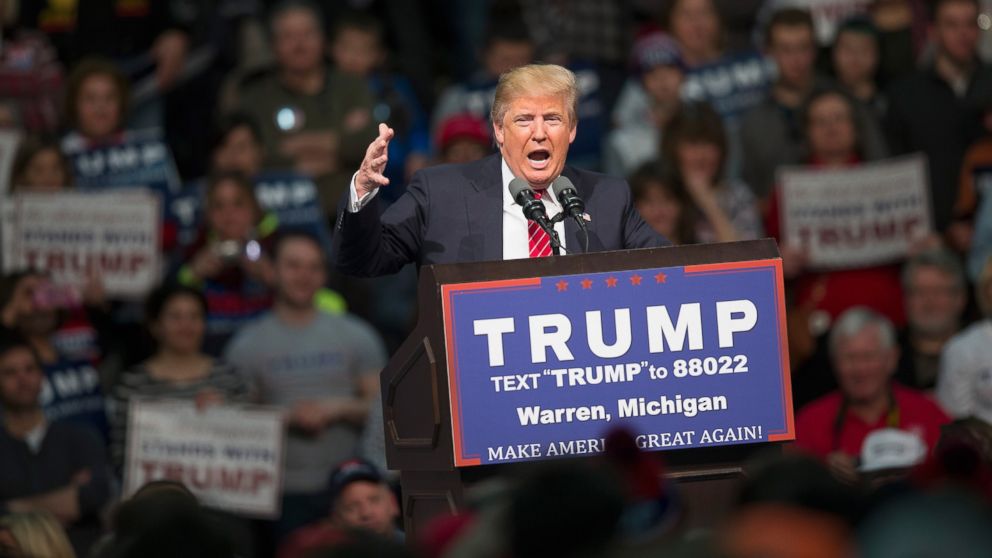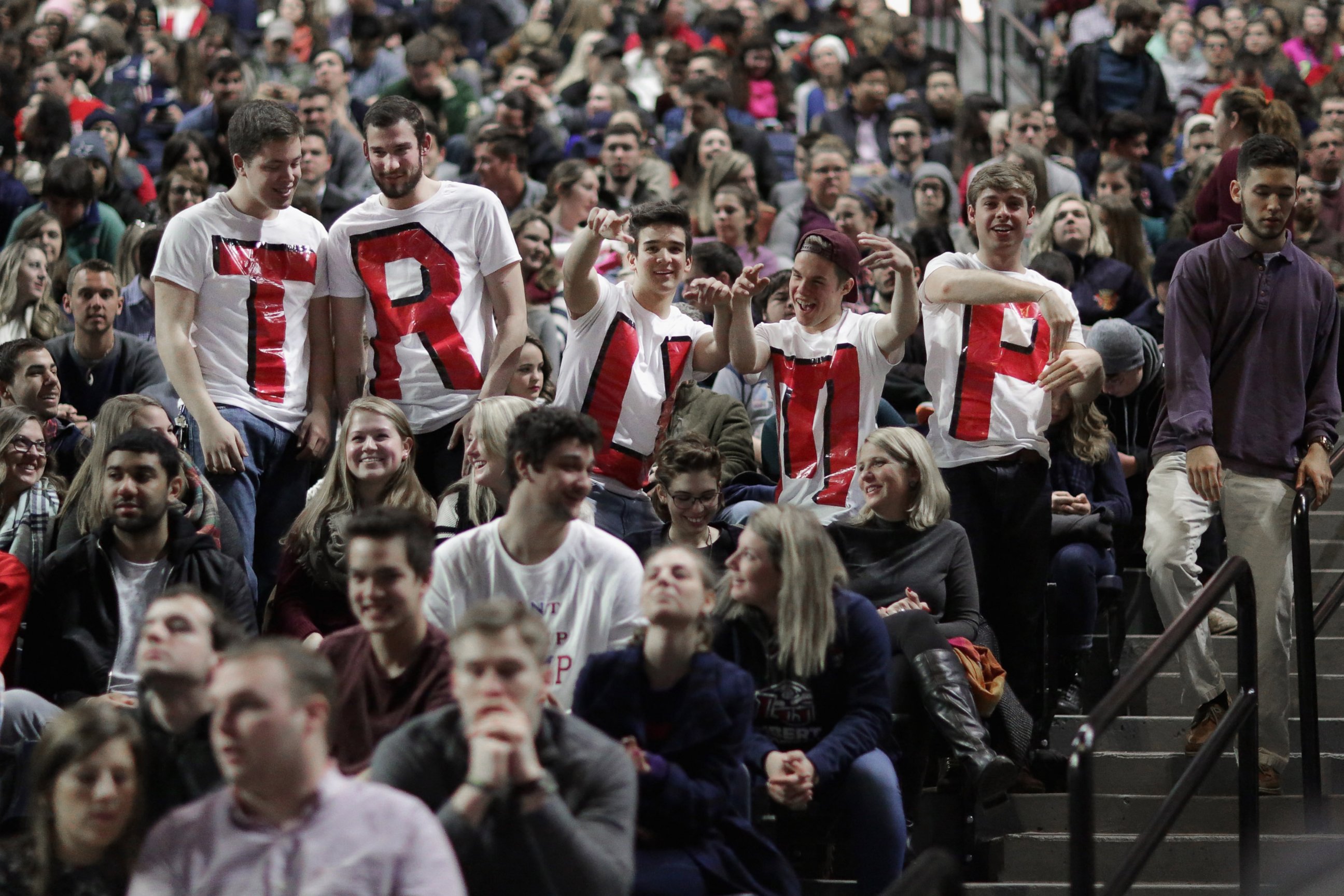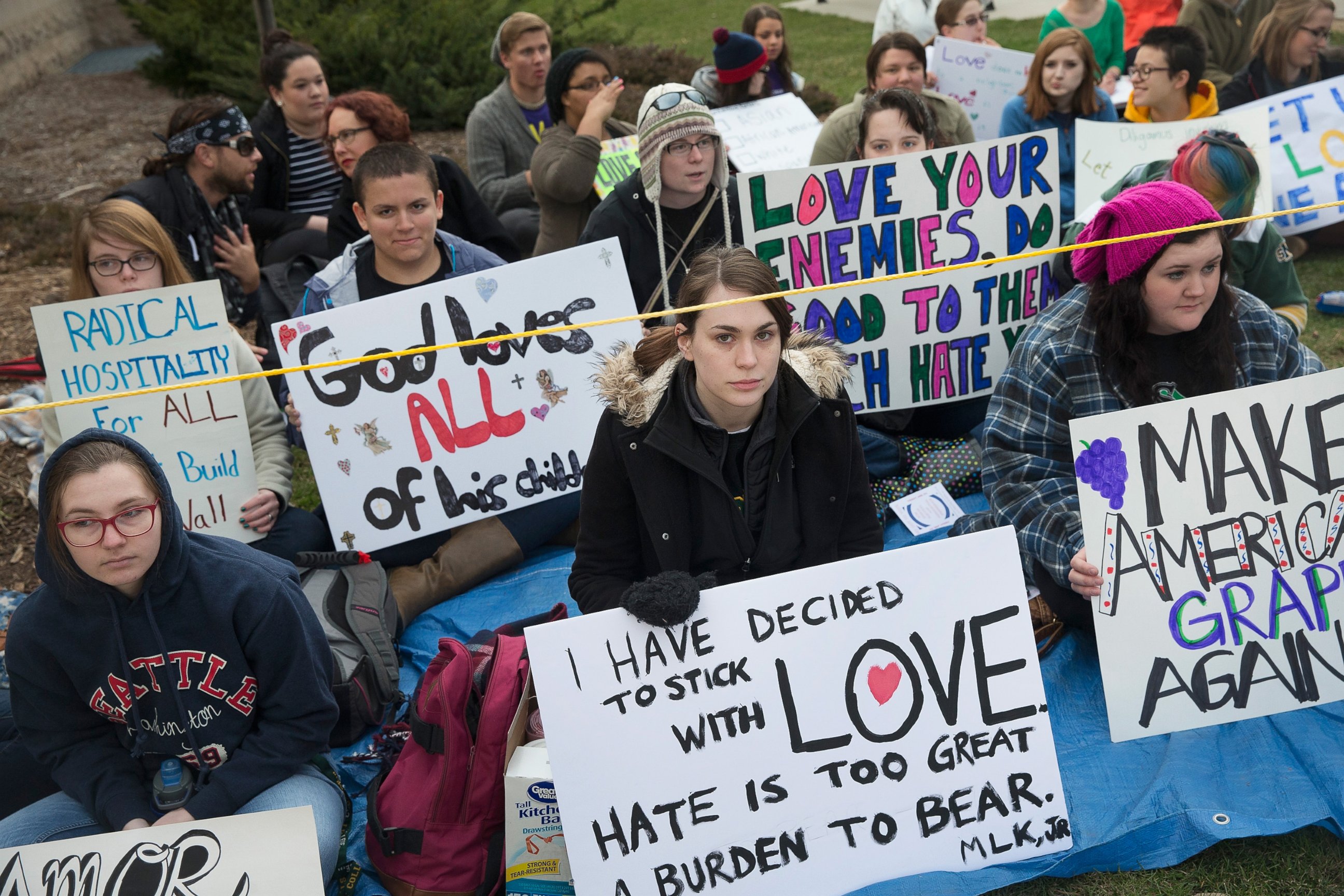Trump is a Turnoff to Some College Republican Groups
Many students preparing to head back to campus are not ready to vote for Trump.

— -- For the first time in 128 years, the Harvard Republican Club is refusing to endorse its party’s candidate for president.
Similarly, at Trump’s alma mater, the University of Pennsylvania, members of the student Republican organization told ABC News they also will not be supporting Donald Trump.
And, in interviews with Republican college students around the country, some say they dread their turn inside the voting booth in November where they will face the choice of voting for their party's standard-bearer or not.
Four years ago, GOP nominee Mitt Romney lost to President Obama by 5 million votes among voters under 30. This year, there are indications younger voters may show even less support for the Republican candidate.
“Donald Trump is a threat to the survival of the Republic,” the Harvard Republicans wrote in a post to Medium announcing their decision not to endorse. “He hopes to divide us by race, by class, and by religion, instilling enough fear and anxiety to propel himself to the White House.”
The Harvard club's president, Declan Garvey, told ABC News that his group had planned to hold off on a statement until fall, but he said Trump’s gaffes over the past week made them want to speak out now.
“The past week for Trump has been so embarrassing and so disrespectful to what our members believe in we decided to expedite the timeline,” Garvey said.
A McClatchy-Marist poll released Thursday showed that if the election were held now, Trump would come in last place among voters ages 18 to 29 if the choice was between him, Democrat Hillary Clinton, Libertarian Gary Johnson and Green Party candidate Jill Stein. Only 9 percent of the millennials surveyed would support a Trump-Pence ticket compared to 41 percent who would vote for Clinton, 23 percent for Johnson and 16 percent for Stein.

The Republican National Committee concluded after the 2012 election that its party must adopt a different tone to attract younger voters.
“Young voters are increasingly rolling their eyes at what the Party represents, and many minorities wrongly think that Republicans do not like them or want them in the country," the committee's report examining the 2012 election said. "When someone rolls their eyes at us, they are not likely to open their ears to us.”
But this year among college Republicans at the University of Pennsylvania, "Everybody hates Trump,” said Matt Shapiro, executive director of the university's campus Republican organization.
“On campus it’s a disaster," said Shapiro, 21, a political science and history major. “People are almost embarrassed he went to our school. People love to say that he transferred here: ‘Oh, at least he didn’t start here.’”
Shapiro, who is gay and Jewish, said he initially planned on voting for Trump.
“I always just thought I was going to support the Republican nominee; I thought about the Supreme Court,” said Shapiro. “But then he started talking. And just about everything that came out of his mouth was: a) not conservative, and b) not even American, the way he spoke about women, minorities -- just across the board.”
At the University of Texas, the president of the college Republican organization, Robert Guerra, told ABC News that the last time his group met in May, not one person said they would be voting for the then-presumptive Republican nominee.
Even in South Carolina, a state Trump won handily in the primaries, picking up all 50 delegates, the chairman of the University of South Carolina's campus Republican organization, Nick Pasternak, 20, said that he personally hasn’t made up his mind about whether to support Trump and that the college's Republican group won’t campaign for the Republican nominee.
“We’re trying to make sure we don’t come out against him, but not coming out so much gung-ho for him, just because so many young conservatives and college students in general are not sold on him,” Pasternak said.

Not all college-age Republicans oppose Trump.
Pat Crane, president of the University of Notre Dame's campus GOP organization said his group will support Trump in the fall.
“We’re disappointed in what Harvard did,” Crane said. “We understand. But we’re disappointed.”
Kristen Soltis Anderson, a Republican pollster and ABC News contributor says Trump could be putting the GOP in a challenging position for years to come.
“Donald Trump is definitely doing serious and significant damage to the Republican Party with the millennial generation,” Anderson said. “Republicans came into this election in a tough spot with younger voters already, due to differences on issues like LGBT rights and due to the fact that the millennial generation is so racially and ethnically diverse. Republicans didn't have any room to lose more young voters, and instead nominated a candidate who seems to be fine turning these voters off in exchange for trying to run up the numbers with older voters.”
Back at the University of Pennsylvania, the chief of staff for the college Republican organization said he will reluctantly vote for Hillary Clinton though he will support Republicans in other races. Owen O’Hare, 19, a finance major at the university's Wharton School of Business, said he’s concerned how Trump’s candidacy will affect the GOP's ability to attract people from his generation.
“It’s just not realistic to think that you can have Donald Trump as your standard-bearer and that young people and minorities and really anyone will join,” O'Hare said.




